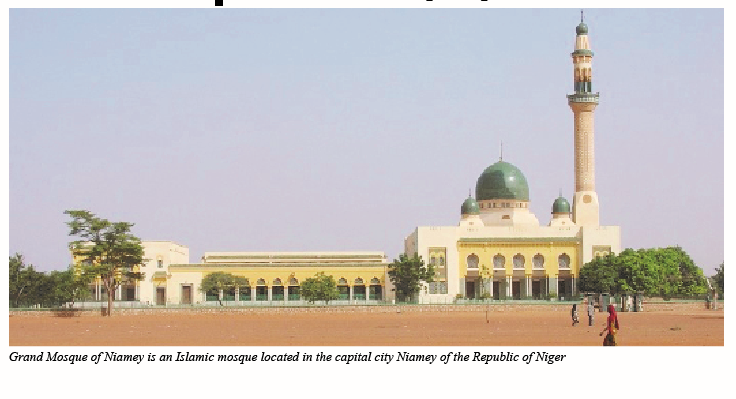Today, we are with the hump of the Qur’an. Today, we meet Suratul Baqarah. This Surah is a Madinan surah. It was revealed in Madinah, spanning long periods, at various times and on different occasions.
Abu Huraira reported Allah’s Messenger sallallaahu alayhi wa sallam as saying: “Do not make your houses as graveyards. Satan runs away from the house in which Surah Baqara is recited.”
In another, he, sallallaahu alayhi wa sallam, said: “Recite Surah al-Baqara, for to take recourse to it is a blessing and to give it up is a cause of grief, and the magicians cannot confront it. (Mu’awiya said: It has been conveyed to me that here Batala means magicians.)
Suratul Baqarah is the hump of the Qur’an:
‘Abdallāh b. Mas’ūd said, “Everything has a hump, and the hump of the Qur’ān is sūra al-Baqara. Everything has a kernel, and the kernel of the Qur’ān is al-Mufassal.”
It is one of the greatest suras of the Qur’an because of the ordinances it contains; it encompasses the entire Qur’an. In it is every exposition of Halal and Haram.
Al Baqarah is commenced with disjointed letters A. L. M.
These disjointed letters are fourteen in number used in the whole Mushaf – half the alphabet of the Arabic language. These letters are used to introduce 29 suras in the Glorious Qur’an. Of these Suras, there are the ones introduced by only one letter: NUN, SAD, QAF.
Some suras commenced with two letters: YA SIN, HAA MEEN, TAA HA, TAA SEEN.
Some suras started with three letters: ALIF LAM MEEN, ALIF LAM RA, TAA SEEN MEEN. At the same time, some were introduced by four letters: ALIF LAM MEEN RA, ALIF LAM MEEN SAD. Some were introduced by five letters: KAAF HAA YAA AIN SAAD, HAA MEEN AIN SEEN QAAF.
From here, the scholars disagreed; some said these are part of what makes up Allah’s greatest name, but we only do not know the composition of what letters make the name. Others said that these letters are another name for the Qur’an. Some said that these were letters with which Allah swore the book was true. Another opinion is that these letters are appellations for the Suras. Some others said the letters are used to draw attention from those who were told not to listen to the Qur’an and make a lot of noise instead; these letters are used to draw people’s attention to what will come afterwards.
The most authentic position regarding these letters is that they are Allah’s secret. Allah has a secret in every scripture. His secret in the Qur’an is the opening of some Suras. They are part of the Mutashaabih (allegorical) whose meaning is known by Allah only. It is not fitting that we talk concerning it, seeking to fathom its meaning, since none knows its real meaning save Allah.
ALIF LAM MEEM, these are the letters with which Suratul Baqarah heralded its beginning. If these words were uttered by a learned person to the addressees of the Prophet, sallallaahu alaihi wa sallam, nobody would be amazed. But for an unlettered person to say them, pronouncing them correctly while he could neither read nor write, that was astounding. These are the letters that a student will first learn in their effort towards literacy. The teacher will try to make the students recognise and say the words correctly. How was it possible for an unlettered person to confidently pronounce them to a multitude? It is a miracle in itself. Unless Allah inspired him, he couldn’t know these letters and pronounce them faultlessly.
1 A. L. M.
2 This is the Book; in it is guidance sure, without doubt, to those who fear Allah;
- This is the Scripture whereof there is no doubt, a guidance unto those who ward off (evil).
As we saw in al-Fatihah, there is guidance that comes from the messengers of Allah, like what we read in:
- And thus have We inspired in thee (Muhammad) a Spirit of Our command. Thou knewest not what the Scripture was, nor what the Faith. But We have made it a light whereby We guide whom We will of Our bondmen. And lo! thou verily dost guide unto a right path. (As-Shuraa)
And:
- Those who disbelieve say: If only some portent were sent down upon him from his Lord! Thou art a warner only, and for every folk a guide. (Ra’d)
The other guidance is that of creating imaan in the heart; that is for Allah only.
‘….a guidance unto those who ward off (evil).’
What is Taqwah?
There are three stages for Taqwah:
1- to guard yourself against the everlasting punishment of Jahannam by avoiding Shirk and believing wholly in Allah. That is the essence of at-Tauheed.
2- to avoid any commission or omission of acts of disobedience to Allah. Neglecting Salah, for instance, is a sinful omission. Imbibing alcohol is a sinful commission, so as backbiting and slander. We have to stay away from all these so Allah may forgive us and save us from chastisement in the Hereafter, as He said:
- If only the People of the Scripture would believe and ward off (evil), surely We should remit their sins from them and surely We should bring them into Gardens of Delight. (al-Maa’idah)
3- Allah’s presence should preoccupy your privacy.
- O ye who believe! Observe your duty to Allah with right observance, and die not save as those who have surrendered (unto Him);
Now, further details of the Muttaqeen:
3-Who believe in the Unseen, are steadfast in prayer, and spend out of what We have provided for them;
What is imaan (belief)?
To accept that something is true, linguistically, is the meaning of belief, as we saw with the brothers of Yusuf when they said to their father:
- Saying: O our father! We went racing one with another, and left Joseph by our things, and the wolf devoured him, and thou believest not our sayings even when we speak the truth. (Yusuf)
It is as if the believer (say, a listener, for example) trusts that the person speaking to him will not betray or lie to him, linguistically speaking.
But in the Shari’ah, Imaan means accepting and affirming that whatever the Prophet, sallallaahu alayhi wa sallam brought from his Lord is true.
Who believe in the Unseen,…
This Ghaib is of two kinds: the one that only Allah knows:
- And with Him are the keys of the invisible. None but He knoweth them. And He knoweth what is in the land and the sea. Not a leaf falleth but He knoweth it, not a grain amid the darkness of the earth, naught of wet or dry but (it is noted) in a clear record. (Al-an’aam)
Like predestination, nobody knows the wisdom behind it.
So, this kind of Ghaib is what only Allah knows. The other one is what He inspired His prophets and messengers with.
The Ghaib here is Allah and His Attributes. Ghaib is also whatever is hidden from us but explained by the Messenger of Allah, sallallaahu alayhi wa sallam like Allah’s messengers, His angels, the Last Day, al-Jannah, the Fire, the Siraat, and Qadar (the good and the bad thereof), as explained by the Messenger of Allah in the Hadeeth concerning imaan:
He (the Prophet) answered, “It is that you believe in Allah and His angels and His Books and His Messengers and in the Last Day, and in fate (qadar), both in its good and in its evil aspects.” (an-Nawawy’s 40 Hadeeth Collection)
‘…..are steadfast in prayer,…’ in the best ways, and praying as the Messenger of Allah prayed.
Narrated Malik bin Al-Huwairith (RA): Allah’s Messenger sallallaahu alayhi wa sallam said: “Pray as you have seen me praying.”
(Reported by al-Bukhari).
The meaning of the Hadeeth is to offer prayer from purification to performing ablution, covering Aurah, facing the Qiblah, reciting Ummul Qur’an, bowing, prostration and whatnot. Offering the prayer, fulfilling all conditions and observing it in the prescribed periods.
- When ye have performed the act of worship, remember Allah, standing, sitting and reclining. And when ye are in safety, observe proper worship. Worship at fixed hours hath been enjoined on the believers. (an-Nisaa)
Ibn Mas’ud said: I asked the Prophet which action is dearest to God and he replied, “Prayer at its proper time.” I asked what came next, and he replied that it was kindness to parents. I asked what came next and he replied that it was jihad in God’s path. He said, “He told me of them, and if I had asked for more he would have told me more.”
(Bukhari and Muslim.)
‘A’isha reported God’s Messenger as saying, “The acts most pleasing to God are those which are done most continuously, even if they amount to little.”
(Bukhari and Muslim.)
Buraida reported God’s Messenger as saying, “The covenant between us and them is prayer, so if anyone abandons it, he has become an infidel.”
Ahmad, Tirmidhi, Nasa’i and Ibn Majah transmitted it.





